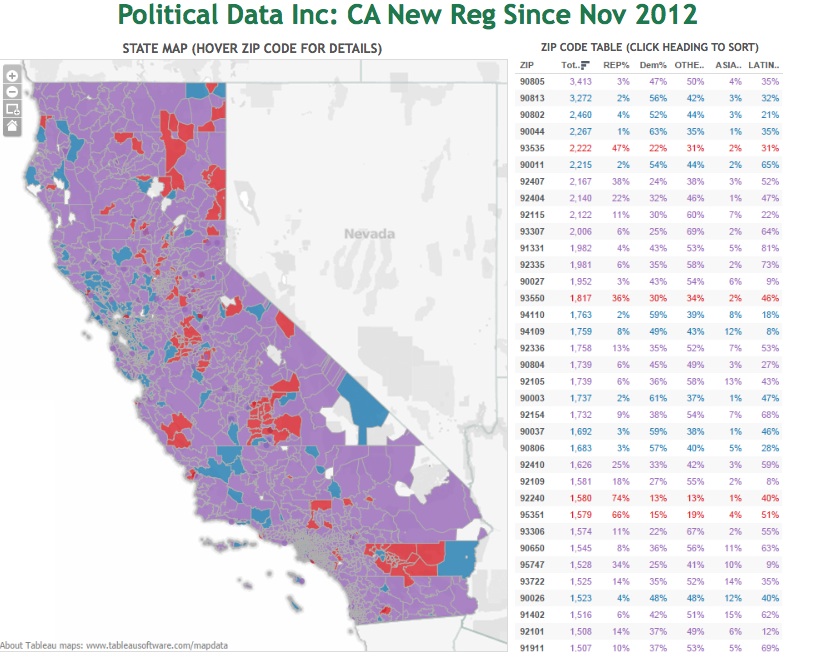How California Democrats Should Target Independents in 2014

"In 51 out of 58 counties, the partisan groups are losing the battle," Paul Mitchell emphasized at the Voter Trends Panel discussion at the California Democratic State Convention in Los Angeles.
What does this mean for campaigning in the state?
"We've got to stop just targeting Democrats," Mitchell, president of Redistricting Partners and Vice President of Political Data Inc., advised a group of eager Democratic delegates, volunteers, and community organizers.
Instead, he focused his attention on discussing a new categorization of California voters, a group he identified as "DemPlus." This "Plus," as explained on the Political Data Inc. blog, "signifies that the voter is either a member of that partisanship, or acts like it. This uses data such as partisan donations and history of pulling a partisan ballot."
If a voter has donated to a Democratic candidate in a recent election, then he or she will vote for a Democrat in future elections, he argues.
Categorizing voters who choose not to be categorized by a particular political party, however, ignores the changing political attitudes of California voters.
Since 1997, the number of voters identifying as No Party Preference is up almost 10 percent. Nationally, voters have repeatedly expressed their discontent with Congress, with approval ratings hitting all-time lows in 2013.
Just 17 percent say they would re-elect their representative to Congress, yet party bosses continue to endorse and fund incumbents across the state of California.
Voters are increasingly registering as No Party Preference because they feel like the two major political parties no longer represent them.
Targeting this group of voters along-side registered Democrats with the same Democratic Get Out the Vote information does not ensure they will vote for a Democrat on the ballot.
Why? Because these voters do not make decisions based on the (D) or (R) designation next to a candidate's name on the ballot. They are not party loyalists and it is statistically proven they not vote along party lines.
As California's electorate continues to shift, campaigns should shift their strategies to better appeal to the nonpartisan voters in the state. These voters have made a conscious decision not to be placed in the same group as registered Democratic or Republican voters. Campaigns should listen.
Photo Credit: Alex Gauthier




